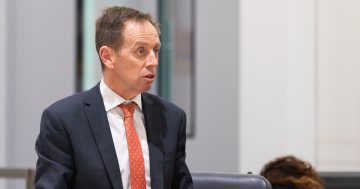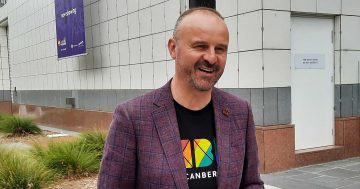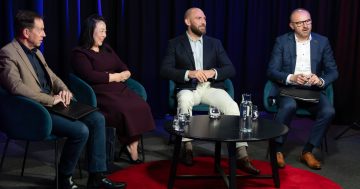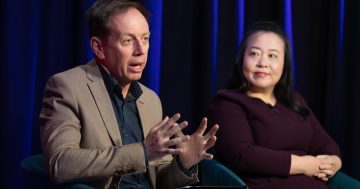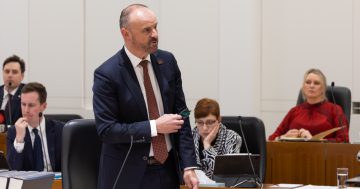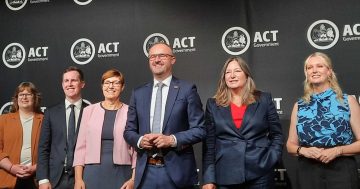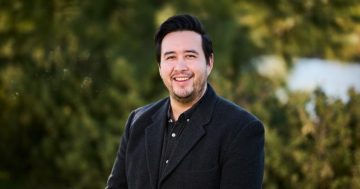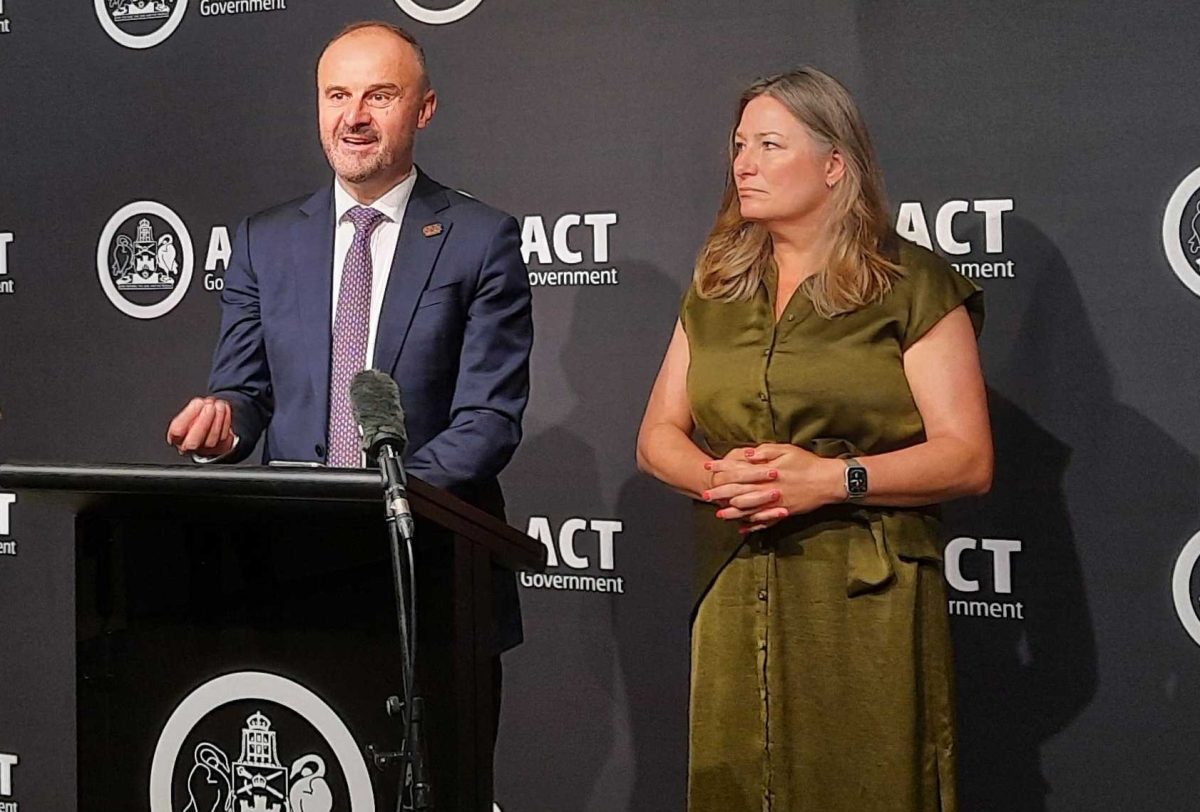
Chief Minister Andrew Barr and his Deputy Yvette Berry will lead a ministry of eight. Photo: Ian Bushnell.
Andrew Barr will announce a ministry of eight on Thursday morning (7 November) with a strong focus on economic and budgetary policy after securing the support of the Greens and Independent for Caberra’s Thomas Emerson to be Chief Minister of a minority Labor Government.
Mr Barr said there would be an economics team within Cabinet and Labor would be very focused on delivering its commitments with a view to managing the Territory’s finances appropriately.
Labor’s two new MLAs, Catlin Tough and Taimus Werner-Gibbings, will not be walking straight into a ministry but will be kept busy with an enhanced committee system, which will play a stronger role in policy development.
Liberal Mark Parton will become the new Speaker, a role he sought after his party’s leadership change.
Mr Barr said on Wednesday that the key sticking point in coalition talks with the ACT Greens was fiscal responsibility, saying their multi-billion dollar list of policy demands would have blown out the budget.
“We were very firm in the constraint that the Budget, the pre-election Budget update and the available provisions for new expenditure and new infrastructure investment set a parameter for what would be possible in negotiations,” he said.
“The Greens Party wanted Labor to commit well beyond that, to a point of expenditure that would have seen debt levels increase, interest costs increase significantly and make it almost impossible for the territory budget to be balanced at any point in the future.”
For example, Mr Barr said the Greens demand also did not account for the significant resources and labour required to build 10,000 new public housing homes.
The Greens sought to bring forward light rail stage 2B to Woden and make a start on the next stage from Belconnen, a timetable that Mr Barr said was neither practical nor feasible.
The Greens also wanted to spend more on the environment, without details, and active transport, as well as persisting with its demand for Thoroughbred Park to be turned over completely to housing and end horse racing in the ACT.
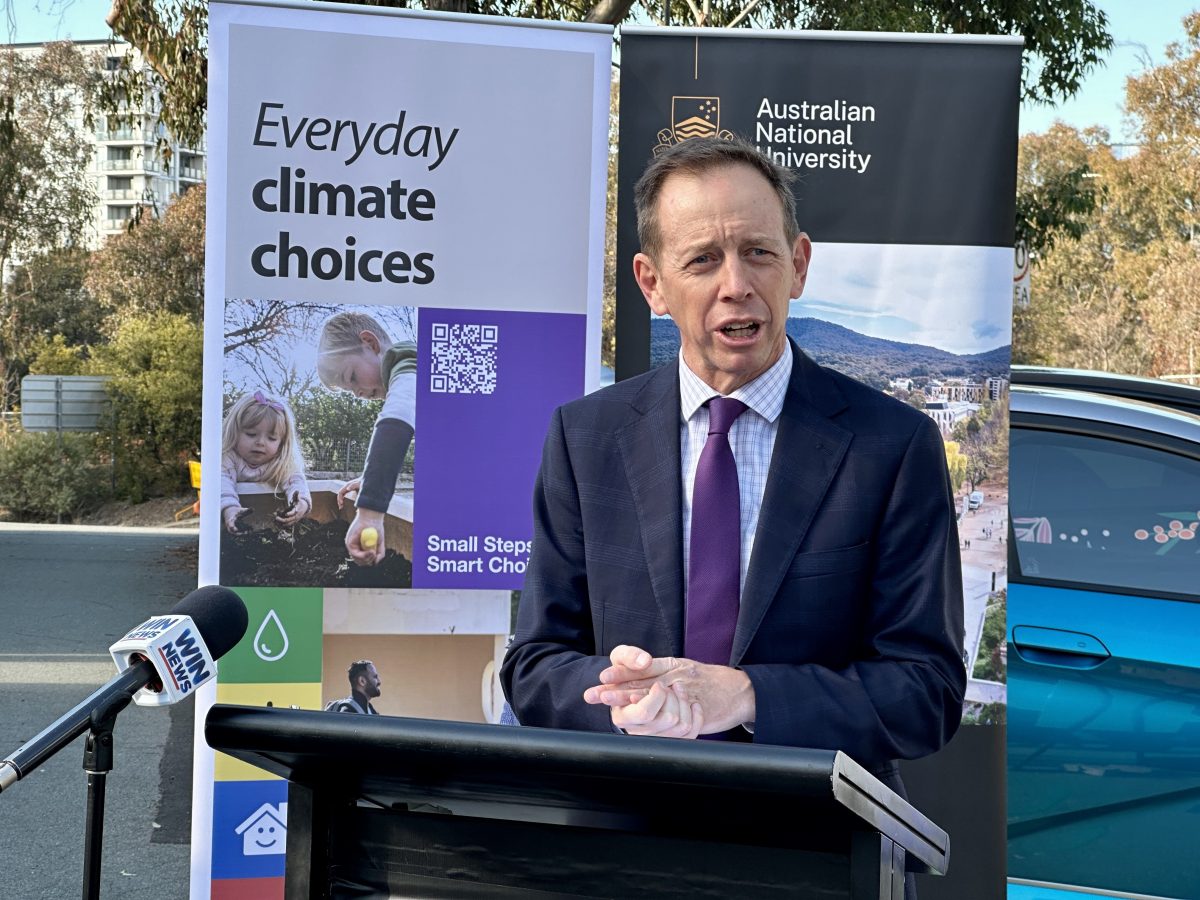
Greens leader Shane Rattenbury insists Labor has its priorities wrong. Photo: James Coleman.
But Mr Barr said the government would be able to find money in the budget to meet Mr Emerson’s conditions for support, such as more assistance for the community sector, establishing a strata commissioner, and recruiting more park rangers to work on environmental conservation and invasive species management.
He said the pre-election budget update set aside funds for further indexation, service delivery, including foundational supports under the NDIS, and new recurrent expenditure.
There would also be fewer directorates and a plan is on the table to boost funding for the community sector.
Ten park rangers would cost about $1 million, which would be found within a restructured agency.
Mr Barr said Labor decided not to contest either Speaker role, instead nominating Mr Parton and leaving the deputy speakership to the crossbench.
He said Mr Parton proved his ability to be an independent Deputy Speaker in the last Assembly, “so we felt comfortable that he would be an impartial and fair speaker for the Assembly”, Mr Barr said.
Mr Barr added that the new government would cut back on consultants and use resources within the ACT Public Service, as well as beef up the committee system to investigate and develop policy, something both the Greens and independents sought.
He said the new Assembly would operate quite differently and require more collaboration across parties and independents than previously.
“Our task will be to get 13 votes to implement the different elements of Labor’s agenda, and our partner on much of it will be the Greens and the crossbench, but occasionally it could be the Liberal Party,” Mr Barr said.
He was unsure if the Greens’ absence in Cabinet would make life easier for the government, given it would still have to negotiate with the crossbench on legislation.
Greens leader Shane Rattenbury said that while he was unable to strike a coalition deal with Labor, the parties had agreed to work on a range of policy items, including setting an urban growth boundary, establishing a strata commissioner and a rental ombudsman, increasing bulk billing and installing rooftop solar on public housing homes.
He insisted that speeding up the delivery of housing, light rail and walking and cycling infrastructure was achievable.
“Everybody else in Canberra knows you can do it faster, but the Labor Party are stuck where they are on their approach,” he said.
“We will use our position on the crossbench to powerfully make the case that there are better options, there are better ways to do it and that it is possible to be more ambitious whilst being fiscally responsible.”
Mr Rattenbury said it was about priorities, saying Labor would give $40 million to horse racing but had no money to build one extra government house.
He said the Greens would make the next four years a contest of ideas so the community knows there are better options.
“We will use our experience in government to pull all the levers that we know how to pull down,” he said.
“We will use every tool we have in the Assembly to make the case.”
Mr Rattenbury said the Greens would work with all MLAs and called out the new Liberal leadership spurning talks with his party.
“It’s almost incomprehensible that somebody would come to this place with that sort of attitude,” he said.
Mr Barr said voters wanted a degree of change, but they still wanted a progressive government.
“And so we will seek to form a progressive and consultative government for Canberra,” he said.












